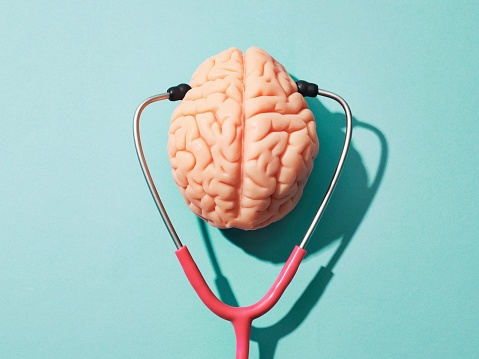
A good orgasm can leave us breathless and unable to do anything but stare at the ceiling while we regain control of our limbs.
If you know the feeling, you’ll know it’s pretty incredible – but why does that (sometimes elusive) climax feel so intense?
How does an orgasm affect our brain, memory, and muscles? Metro spoke to a gynaecologist to find out.
What causes that orgasmic sensation in women?
Dr Sachchidananda Maiti explains that orgasms are the equivalent of a ‘full-body fireworks show’ that set off reactions all over your body, from your brain to your skin.
For most women, the 8,000 nerve endings in the clitoris start off that reaction more than anywhere in the body.
‘These nerves are connected to the pudendal nerve, which sends intense pleasure signals to the brain,’ he tells Metro. ‘During stimulation, these signals activate the limbic system, which is responsible for feelings of euphoria and pleasure.

‘At orgasm, there’s a surge of dopamine, oxytocin, and endorphins, creating that intense, euphoric rush.’
The euphoric rush is a culmination of nerve stimulation, muscle contractions and brain chemistry. ‘Rhythmic contractions of the pelvic floor muscles, changes in heart rate, and increased blood flow create that full-body pleasure sensation,’ Dr Maiti adds.
Of course, women can have orgasms from penetration too, and there’s a difference in sensation to clitoral stimulation.
‘Direct stimulation of the external clitoris, which is packed with nerves, leads to a sharper, more focused pleasure sensation,’ he explains. ‘A penetrative orgasm comes from stimulating the internal parts of the clitoris, the anterior vaginal wall (G-spot), or even deeper regions like the A-spot or cervix.
‘Stimulation here can activate deeper pleasure through the pudendal nerve – a major nerve in the pelvis that controls sensation in the genital and anal areas – and vagus nerve (the longest nerve in the body).
‘Even though they feel different, they both trigger the same brain activity and muscle contractions, which is why the result often feels similar.’
What causes that orgasmic sensation in men?
Like female orgasms, Dr Maiti explains that male orgasms also rely on the pundenal nerve but the way it’s stimulated is different.
The most sensitive areas are the head of the penis, frenulum (your banjo string), and perineum (the area between the anus and genitals).

Dr Maiti, for Pall Mall Medical, explains: ‘When these areas are stimulated, the signals travel to the sacral spinal cord, triggering muscle contractions in the pelvic floor, sperm ducts and prostate, leading to ejaculation.
‘The brain activity and chemical release are really similar to what happens in women, so the feeling is likely very close.’
What does an orgasm do to your brain?
When we reach that fabulous climax, gynaecologist Maiti explains that the brain actually looks like it’s having a seizure, because of a burst of electrical activity across different regions, including those linked to emotion and reward.
‘Your brain floods with dopamine, oxytocin, and endorphins, the same chemicals linked to deep relaxation and happiness,’ he says.
This means that orgasms light up similar areas to certain recreational drugs, which can leave you in a ‘post-orgasmic daze’.
‘That dreamy, spaced-out feeling can last anywhere from a few seconds to several minutes, depending on the person and intensity of the orgasm.’
In rare cases, people can even experience transient global amnesia (TGA) after they climax, according to the doctor.
Basically, you can briefly forget things after sex, bringing a whole new meaning to not being able to think straight.
‘This is because of a sudden drop in blood pressure, reducing blood flow to the brain. It’s rare but usually harmless,’ Dr Maiti adds.

What does an orgasm do to your heart and muscles?
‘Your heart isn’t just racing for dramatic effect, it’s working hard,’ Dr Maiti explains.
During orgasm, your heart rate can go from resting 60 to 80 beats a minute, to 140 to 180 beats per minute, which mimics the effects of intense exercise.
‘Blood pressure rises, blood vessels dilate, and your skin may flush,’ he adds. ‘That post-climax glow isn’t just in your head.’
Ever noticed your body trembling after sex? That’s because your muscles are going wild. An orgasm causes your pelvic muscles to contract in what Dr Maiti calls rhythmic waves roughly 0.8 seconds apart.
This is because the pundendal nerve sends a message to your spine to trigger the sacral nerve which controls controlling functions in the pelvic region.
These spasms help with blood circulation, tension release, and in reproductive terms, sperm movement in the vagina.
But it’s not just your pelvic floor that’s getting a workout. Your legs, arms, and even your face can spasm too.
These are all involuntary and the doctor says they include your mouth opening, your eyes rolling back, or even subtle movements like twitching cheeks or tensing your jaw.
‘Some people even get full-body shudders, almost like a mini seizure, thanks to nerve activation and muscle fatigue,’ he adds.
An orgasm can make your testicles shrink
When you orgasm your testicles can shrink, appearing smaller to the naked eye than you’d expect.

‘Don’t panic,’ Dr Maiti says. ‘For men, testicles can temporarily contract post-orgasm due to muscle tightening and a rush of blood flow shifting elsewhere, mostly to the penile veins.
‘They return to normal quickly, so there’s no need to check frantically.’
During sex, testicles can actually swell by up to 50% of their resting size, due to the extra blood flow, so when they shrink post-orgasm, the size difference could be a bit of a shock, but it’s nothing to worry about.
Tears and sneezing
It’s not just hay fever that can leave us sneezing, apparently orgasms can too.
Known as post-orgasmic sneezing, Dr Maiti says this occurs because the sneeze reflex and orgasm response both involve the autonomic nervous system, which controls involuntary reactions.
He explains: ‘For some people, orgasm overstimulates this system, triggering a crossed signal to the nerve in your head responsible for sending signals to your face, which can result in sneezing.’
Crying post sex is also common and totally normal. According to the healthcare professional, this happens because of the surge in oxytocin and prolactin – the hormones that regulate our emotions.
‘This can create an overwhelming sense of release, joy, or even sadness,’ he adds. ‘Some people cry due to emotional intensity rather than sadness, it’s the body’s way of processing an intense experience.’
Listen, it’s your orgasm and you cry if you want to.
Do you have a story to share?
Get in touch by emailing MetroLifestyleTeam@Metro.co.uk.